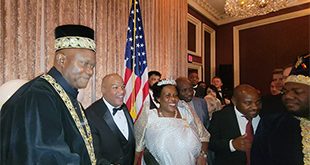
Kampala, Uganda | THE INDEPENDENT | Nearly a month after the reopening of school for the first term, it has emerged that a section of teachers and learners in senior three are still struggling to select their preferred subjects. In Uganda’s education system, learners in senior three and four are required to choose their preferred subjects that will determine their subject combination in the Advanced level of education.
However, recent changes in the number of subjects offered at O’ level have caused confusion among learners and teachers. Our reporter sampled some teachers last week to understand if they were able to guide their learners on the subject selection process, but their responses showed that the teachers were ill-informed about the subject.
Two examples caught our reporters’ ears. A teacher from St. Mary’s College Kisubi (SMACK), said that the learners are allowed to choose only one subject in addition to the seven compulsory subjects. “Every child will be required to pick one subject. That’s all I know. Actually, many students have already made their choices,” the teacher stated.
Another teacher from St. Joseph Nansana admitted that he was not sure about the process for selecting the subjects. “I’m not sure how these things are done. I have heard that subjects are grouped into three categories, and a learner is allowed to pick one subject from each of the groupings,” he said.
Under the new curriculum, students in Senior One and Senior Two are allowed to study only 12 subjects out of the menu of 20. Eleven of the subjects are compulsory and one is elective. The compulsory subjects are English Language, Mathematics, History, Geography, Physics, Biology, Chemistry, Physical Education, Religious Education (CRE and IRE), Entrepreneurship Education, and Kiswahili.
The optional subjects include Agriculture, ICT, Art and Design, Performing Arts, Technology and Design, Nutrition and Food Technology, and Languages (French, Latin, sign language, local language, and literature in English, Arabic, and Chinese).
According to Dr. John Okumu, the manager Secondary Department at National Curriculum Development Centre, when students enter Senior Three under the new curriculum, they are only allowed to choose a maximum of nine subjects, as opposed to the old curriculum where learners were required to select a maximum of ten subjects.
Okumu explains that since seven subjects are compulsory, a learner can add two subjects of their choice from the three groups. “The groups include pre-vocational subjects, languages, and religious education. A learner is allowed to choose their elective subject from different groups or from the same group,” Okumu explained.
Based on Okumu’s explanation, a learner is allowed to choose a combination of elective subjects such as Agriculture and ICT, Entrepreneurship and Performing Arts, or even a foreign language and a local language, such as Luganda and French, or Chinese and Literature in English.
Still, a learner can offer agriculture and Luganda, literature in English and CRE. However, Okumu clarifies that for Religious Education (RE), a learner cannot take both IRE and CRE at the same time. The learner is required to choose either of the two subjects.
Aloysius Matovu, a teacher from SMACK shed more light on why his colleague thought that a learner can only choose one subject. He explained that since SMACK is a Catholic-founded school, Christian Religious Education (CRE) is compulsory. Therefore, in addition to the seven compulsory subjects, CRE makes up a total of eight subjects.
According to Matovu, some learners can choose to concentrate on the eight subjects without adding another elective subject.
However, other learners can select an elective subject from the available menu offered by the school. Okumu further explained that for special needs learners who cannot do practical subjects like the blind or amputees, the National Curriculum Development Center (NCDC) has developed a general Science course that integrates Physics, Chemistry, and Biology.
This means that these learners will have five compulsory subjects in addition to two electives. He also observed that parents should be critical when choosing schools for their children, given the fact that some schools may limit the range of subjects a learner can choose from. Many schools pre-select subjects based on their capacity and human resources. For example, SMACK offers CRE as a compulsory subject but does not teach Fine Art (Technology and Design).
In a recent interview, Hussein Gombe, the headteacher of Mulago High School, noted that schools have over the years selected electives that they can afford to offer. “Some students may be interested in certain subjects, but schools cannot afford to offer them due to the associated equipment, staff, and related expenditures. This cost cannot be transferred to the learner. In some areas, even the teachers may be scarce,” Gombe noted.
Dr. Umar Mwebesa, the former vice academic registrar at the Islamic University in Uganda and an Educationist, says choosing a career path based on a student’s interests and passion is not easy. He says academic advisors should play a significant role in guiding students.
“Before selecting the subjects, a teacher should Study the student’s academic background. This will explore the student’s ability to choose either a science career path or humanities. The academic advisor is expected to engage the student and guardian for a tripartite consultation. The Guardian too has a role to play in the subject choice depending on his ability to manage the financial implications,” Dr. Mwebesa said.
Dr. Mwebesa, who is currently the Registrar of the Islamic University of Technology in Bangladesh, emphasized the importance of exposing S3 students to various opportunities to choose between science and humanities. “Academic advisors should guide them to take the appropriate subject combinations that align with their desired future career programs,” he said.
According to him, it is also important to consider career guidance when selecting subject combinations for A-levels. “To study engineering, a student needs Physics, Chemistry, and Mathematics. However, some academic advisors limit student’s chances by advising them to choose two essential subjects e.g physics and mathematics and then add any other supplementary subject like economics i.e PEM, yet this may be the requirement for only Ugandan universities and miss out the chances of studying abroad where PCM is a preferred combination for engineering programs,” he added.
*****
URN
 The Independent Uganda: You get the Truth we Pay the Price
The Independent Uganda: You get the Truth we Pay the Price




That was great
But new curricullum is not really easy
Can I offer Agriculture and fine art together in new carriculum?
Good morning Educationist.
Iam requesting for the guidelines on electives in the new curricullum